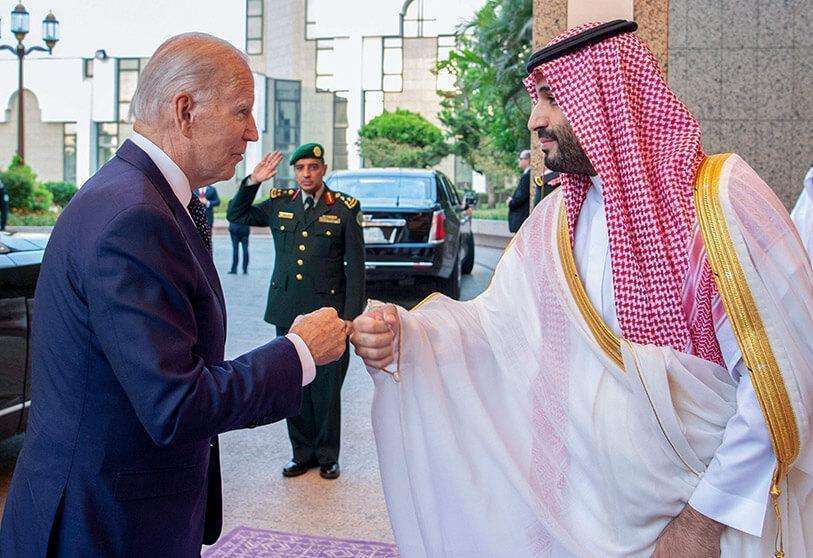Riyadh is open to economic deals with Tehran as Washington watches reluctantly

Last Friday, the situation in the Gulf took, to the surprise of many, a turn that could - and should - mark a turning point in the region's security. Diplomatic ties between Saudi Arabia and Iran, non-existent since 2016, were re-established, through China, to open a new stage that Riyadh is clear could bear its first fruits in the short term. Along these lines, the Saudi Finance Minister, Mohammed Al-Jadaan, has assured that economic agreements with Tehran could be reached "quickly".
The Kingdom is clear that "the objective is to have a region that is stable, capable of supporting its people and prospering". Al-Jadaan, when asked about the possibility of forming a strong economic alliance with Iran, affirms that "there is no reason why this should not happen. Iran is our neighbour, has been, and will be for hundreds of years. Moreover, the investment opportunities on Iranian soil are seen as significant, and as long as sovereignty and non-interference are respected, Saudi Arabia is confident that "significant" investments will be made, as long as "goodwill continues" and both sides "stick to agreements".

Observers have been quick to compare this rapprochement with Iran to what the Saudis themselves have already experienced with Turkey. However, the clear difference between the two cases is the US position. Whereas Washington did not resist this move with the Ottomans, it now seems unwilling to overlook the same with Iran. The sanctions imposed by the White House on the Ayatollah regime clash head-on with Riyadh's investment intentions. Hence, the first moves have already been made which, without explicitly mentioning the restoration of Saudi-Iranian relations, send a clear message to Arabia.
Two US senators, Democrat Chris Murphy and Republican Mike Leem, have introduced a bill under a provision of the Foreign Assistance Act. Under this provision, Congress can vote to request information on human rights practices in a particular country, and in this instance, the country under scrutiny would be Saudi Arabia. If the bill is passed, the Biden administration must submit a report within 30 days, otherwise all security assistance with the Saudis will automatically stop.

This would be a major shift in the ties shared by the US and Saudi Arabia. Riyadh is one of the largest purchasers of US arms and aviation equipment. In fact, just this week, two Saudi airlines agreed to purchase 78 Boeing-produced aircraft for a price tag of around $37 billion. In addition, the deal includes the option to extend it to 43 more aircraft. This is one of several reasons that lead observers to believe that the finance minister's remarks are more focused on getting the resumption of relations with Iran off on the right foot than on actual agreements to come.
However, it also sends a message that Riyadh is open to seeking new alliances and is not bound by those with other countries, including the US. Hence, in line with the objective of diversifying the country's investments and moving away from oil dependence, Saudi Arabia is looking for new countries with which to expand its investment portfolio. Mohammed Al-Jadaan has even invited the Iranians to explore possible avenues for investment in his country, in order to establish a reciprocal bridge in economic terms.
America Coordinator: José Antonio Sierra.








